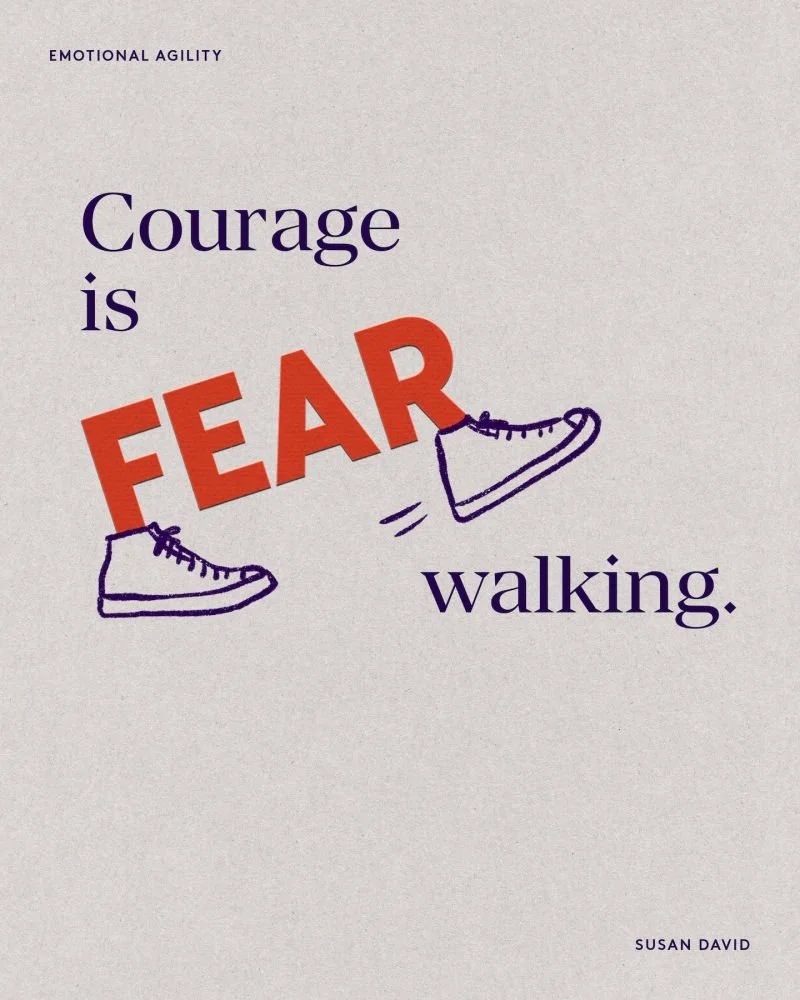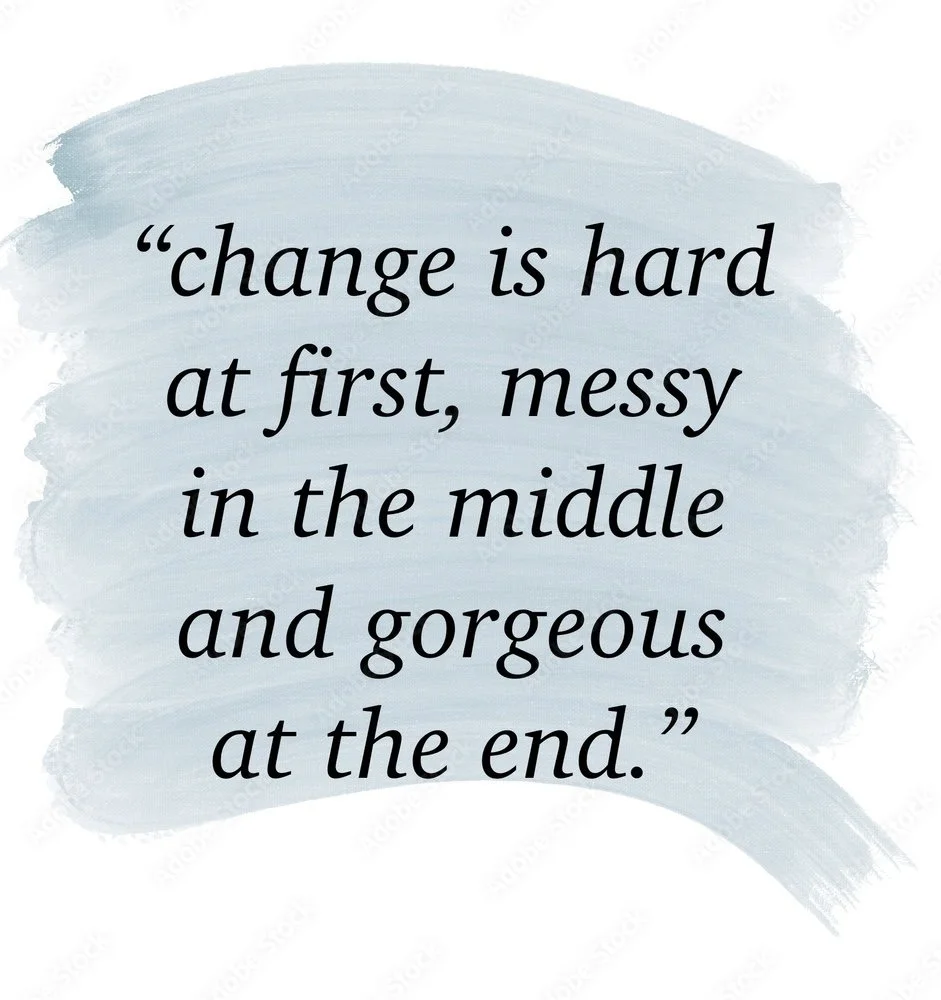Fear of Change: Why We Resist What We Need
As humans, change is inevitable, yet we often find ourselves resisting it, even when we know it might be the best path forward. This resistance is not just a mental or emotional challenge—it’s deeply embedded in how our brains respond to uncertainty.
Whether it’s leaving a job that drains us, ending a relationship that no longer fulfills us, or stepping outside our comfort zone in any way, we often find ourselves clinging to the familiar. But why? And more importantly, how can we move through it with greater flexibility and confidence?
How Our Brain Processes Uncertainty 🧠
At its core, resistance to change isn’t just about mindset or emotions—it’s about biology. The human brain is wired for predictability and efficiency, which provides a sense of security.
When faced with uncertainty, our brain perceives it as a potential threat, activating the amygdala (the brain’s fear center). This triggers a stress response, along with a range of difficult emotions, including fear, anxiety, and doubt, leading us to avoid or delay change—even when it’s for our own good. This response is evolutionary—it helped our ancestors survive by avoiding danger.
We often feel that avoiding change is necessary to stay safe. However, staying stuck in old patterns or situations that no longer serve us, may prevent us from moving forward, simply because the discomfort of change feels worse.
Why does this happen?
Cognitive Load: Unfamiliar situations require more mental energy to navigate. Our brain prefers the ease of habit and routine.
Loss Aversion: Studies show that humans fear losing what they have more than they value potential gains. Even if the change promises something better, the fear of loss often wins.
Sense of Identity: Major changes (career shifts, moving, ending relationships) can shake our sense of self, making us hesitate.
📌 To keep close: Change doesn’t have to be something we fight against. We can acknowledge the discomfort it brings, and still choose to move forward. It’s not about eliminating fear; it’s about learning to accept it as part of the process and deciding to act in spite of it.
💡 Reflection Moment: Think of a time when you resisted change. What fears or uncertainties were driving that resistance?
It is not the strongest of the species that survive, nor the most intelligent, but the one most responsive to change. – Charles Darwin
Why We Cling to the Familiar—Even When It No Longer Serves Us
It's not that we don’t know that things could be better. It’s that change feels risky, and the familiar feels safer, more predictable. This is a deeply ingrained pattern, one that often stems from the need to avoid discomfort. When we stay in the same place, we know what to expect, even if it doesn’t make us happy.
There’s comfort in what we know, even when it’s not ideal. Our attachment to the familiar is driven by psychological and emotional factors:
✔️ The Comfort Zone Illusion We assume that staying where we are will keep us safe. But in reality, stagnation can lead to dissatisfaction, unfulfilled potential, and even regret.
✔️ The “Sunk Cost” Fallacy We often stick with things because we’ve already invested time, effort, or emotions—whether it’s a career, relationship, or belief system—even when continuing is no longer beneficial.
✔️ Fear of Failure (or Success) Change brings unknowns. What if we fail? Or—just as unsettling—what if we succeed and everything shifts? Fear of both failure and success can keep us stuck.
📌 To keep close: Staying stuck often prevents us from living the life we truly want. When we avoid change, we avoid growth. Stepping into discomfort is the only way to get to the other side.
💡 Reflection Moment: What is something you are holding onto because it feels familiar or comfortable? How would letting go open up new possibilities?
How to Embrace Change with Flexibility and Confidence
The good news? Our brains are also adaptable. With intention and practice, we can learn to navigate change more effectively.
1. Embrace Uncertainty as Part of Life
By acknowledging that uncertainty is inevitable and can coexist with our values, we free ourselves to move toward the things that truly matter. We also open the door to the possibility of looking at change differently—not as a loss, but as growth, learning, and possibility.
➡️ Ask yourself:
What could I gain from this change? What new experiences or strengths could emerge?
What is something that I might be missing out on by not trying this?
In a week, month, or year from now, will I be grateful that I took this leap? What would my future self think, feel, or do about this decision?
2. Focus on Committed Action, Not Perfection
Rather than waiting for the "perfect" moment to change or for all of our fears to disappear, we focus on committed action—small steps that align with our values.
➡️ The brain resists drastic shifts, but small, intentional actions signal that change is manageable. Start with tiny changes that move you in the right direction. Each step, no matter how small, is a victory. The key is consistent movement, not perfection.
3. Build Emotional Resilience
Change can be uncomfortable, and that’s okay. Instead of avoiding discomfort, practice sitting with it. The more we allow ourselves to feel our emotions without rushing to push them away, the more resilient we become. Mindfulness, journaling, and self-compassion can help navigate difficult emotions during transitions.
➡️ Take a look at the moments of significant change in your life. Can you notice your resilience in action? What strengths, abilities, skills, or resources helped you navigate those moments?
4. Develop Psychological Flexibility
Psychological flexibility is the ability to adapt to changing circumstances while staying grounded in your values. It’s about being open to change and uncertainty, even when things feel uncomfortable, and still moving forward in ways that align with what matters most.
It’s about being able to acknowledge the fear or discomfort you feel, but choosing to act in a way that serves your long-term goals. This flexibility is like a muscle that can be built through practice.
➡️ Identify a situation in your life where change feels overwhelming. What is one small step you can take toward adapting to that change? Choose a value-driven action to take today, even if it feels uncomfortable.
A Final Thought 💬
Fear of change is deeply human—but so is growth. By understanding our brain’s resistance, challenging our limiting beliefs, and taking intentional steps, we can transform change from something we fear into something we embrace.
You don’t need to be fearless to change—you just need to be willing to take action despite fear.
Changes from my World 🎉
This year has been filled with rewarding professional changes as I take steps forward in my career. I’m happy to share that I am now an ICF Certified Professional Coach (PCC) and a Member of Föderation der Schweizer Psycholog:innen (FSP).
As a PCC coach, I’m more equipped than ever to guide you through personal and professional transformations. As a Licensed FSP Psychologist, I offer scientifically-based psychological counseling services. If you’re in Switzerland, my services may also be covered by your supplementary insurance.
If you’re looking for support in navigating the complexities of being human—with all its wonderful joys and immense challenges—I want to be here for you, get in touch.
Let’s Talk
Are you going through a change or transition in your life? Are you looking for strategies and tools to help you embrace uncertainty, build emotional resilience and develop psychological flexibility? Get in touch—we can discuss your needs and goals and find ways to personalize this process so you can get the most out of it.




